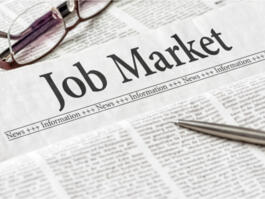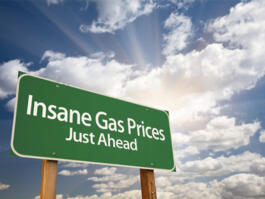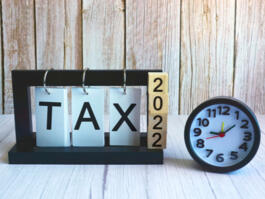More Workers Expect Higher Wages
Fewer than one-in-five workers think they could advance their careers by leaving their current jobs, and most expect a raise within a year.

Fewer than one-in-five workers think they could advance their careers by leaving their current jobs, and most expect a raise within a year.

Americans have noticed they’re paying higher grocery prices, and most expect the cost of food to keep going up.

Negative opinions about the job market have increased since spring and, by a 12-point margin, more Americans expect unemployment to increase in the next year.

Economic confidence decreased to 78.6 in this month’s Rasmussen Reports Economic Index, nearly 10 points lower than June. The index is now at its lowest point since it began in 2014.

The past six months have seen a dramatic increase in gasoline prices, most Americans expect the cost to continue rising.

Even though a majority of Americans can imagine a future where most jobs are done by robots, few believe their own job could be one of those.

Most Americans support efforts to increase diversity in the workforce, but believe this is likely to lead to racial and gender quotas, and most don’t think diversity efforts are improving race relations.

Economic confidence increased to 88.2 in this month’s Rasmussen Reports Economic Index, a half-point higher than May, when a sharp drop took the index to its lowest point in eight years.

As the average price of a gallon of gasoline nears $5, most Americans say the high cost has altered their summer vacation plans.

Americans continue to believe it’s good for young people to work during the summer, and most believe it won’t be hard for teens to find jobs.

Americans are worried about the stock market and a majority now think the U.S. could soon face another Great Depression.

Congress is considering a huge pay increase for federal employees, but a plurality of Americans think government workers are already better off than employees in the private sector.

Economic confidence fell to 87.7 in this month’s Rasmussen Reports Economic Index, more than 20 points lower than April.

Despite inflation and other economic concerns, most homeowners still expect the strong housing market to continue.

Pessimism about the current employment situation has faded since last year, even as concerns for the future of the job market remain high.

Inflation is hitting hard at the grocery store, as more Americans say rising food prices have caused them to change the way they eat.

President Joe Biden has tried to shift blame for the spike in gasoline prices, but most voters aren’t buying his excuses.

While most Americans remain confident about their ability to find a job and get ahead in the current economy, workers are less likely to expect a raise.

Economic confidence rose to 109.1 in this month’s Rasmussen Reports Economic Index, more than 11 points higher than March.

As the April 15 federal income tax deadline approaches, more than half of Americans have already filed with the Internal Revenue Service.